One thing that is often not discussed in nursing programs is burnout and how to combat it. It’s with that in mind that FVI School of Nursing and Technology has decided to take this question head on and discuss some of the most common ways to prevent nurse burnout successfully.
Burnout is prevalent in high-stress professions and the medical industry is a top contender for careers with the highest rate of burnout and exhaustion.
According to the Journal of American Medical Association, nurses experience the second highest level of burnout of all professions in the U.S. today.1 The number one spot and professional with the highest rate of burnout goes to physicians.2
As nurses we are proud of our weary souls and we display our aching feet as a badge of honor, but we must remember that we deserve a break and a chance to reset. When we are rested it’s good for us and for our patients. Please take these steps to prevent nurse burnout seriously!
What Is Nurse Burnout?
Like the name suggests, nurse burnout represents a period when a nurse’s physical, mental, and emotional exhaustion has reached a point where the fire that motivates them begins to burn out.
Nurse burnout manifests first in the following ways. If you answer yes to these questions, you may be experiencing burnout:
- Are you becoming cynical about work?
- Do you dread entering the building?
- Do you find it difficult to concentrate?
- Does it take less to frustrate you?
- Do you find yourself complaining more and more to friends and coworkers?
- Are you using coping mechanisms like food, drugs, or alcohol to manage stress?
- Are you finding it difficult to sleep and difficult to rise out of bed?
The good news is that you can avoid burnout if you start now.
The 3 Stages of Nurse Burnout
1 – Over Proving Worth & Working Too Hard
The first sign of nurse burnout is mental. It’s no secret that the most hard-working nurses tend to be the ones affected most by job burnout. It begins with the need to prove oneself constantly, which leads to overworking yourself.
The inability to turn off is the first sign that you are approaching burnout and professional exhaustion. Are you thinking about work before bed, and as soon as you wake up? Are you worried about future tasks when you are at home? Do you find yourself thinking about work in times of unrelated stress?
2 – Changing Boundaries & Neglecting Self
The second sign of nurse burnout is physical. Because the work has taken over your mind, you begin changing your priorities, your boundaries and your values to accommodate the intrusive thoughts related to work.
Your sleeping and eating schedule both become erratic. Conflicts are dismissed and time with friends and family is avoided. These early symptoms eventually lead to the denial of all emerging issues moving forward.
3 – Withdrawal & Depersonalization
The final stage of nurse burnout is withdrawal. Once you have reached this point it will be difficult to avoid burnout or combat burnout, but not impossible.
This stage is characterized by complete loss of value, you cannot find value in yourself, others, or your daily activities. You feel empty inside and compensate even further with drugs, alcohol, food, and generally negative behaviors. You feel lost and even depressed.
How to Prevent Nurse Burnout
Now on to the most important note, how can you prevent nurse burnout so that you don’t reach stage 3 at all.
1 – Resilience & Coping
It’s important for nurses to develop coping mechanisms to deal with the stresses of the job. Nurses are not only mentally tested every day, but also emotionally tested. You are dealing with people after all. Hospitals are filled with overly demanding doctors, difficult patients and by far the worst, patients who are in pain and in need.
It is VITAL for nurses to develop coping mechanisms and build a healthy boundary between work and home. You must learn to shut off when you leave the building. Some great methods of relaxing are going to gym right after work, going for a run, or doing yoga. It’s best if you do these activities right after work. Put something between you and work that allows you to create a healthy boundary that will separate the two.
2 – Prioritize Self
The best way to prevent nurse burnout is to focus on yourself when you feel stressed. Unfortunately, good nurses will focus on patients far too much, burdening themselves with work. In the long run, this will have a negative impact on the patient’s health.
You must go back to basics. Schedule more time to shower and to get ready in the morning. Focusing on your physical appearance will positively affect your mental wellbeing. Take more time for yourself.
3 – Get Support & Vent
Create a strong bond with your fellow nurses. They are the best defense against burnout because they will keep you grounded and remind you of what’s important. If anyone can understand what you are going through, it’s the nurses around you.
Be sure to speak up and vent to them where appropriate.
When it’s Not Burnout – Time to Get a New Job
Sometimes, the burnout is just based on the environment you work in. It may be a doctor, a coworker, the hospital environment or a long commute that finally puts you over the edge. It’s important to notice when the burnout has nothing to do with the work, and has everything to do with the environment. In those cases, you should consider moving on.
- Do you share the same values as your coworkers and management?
- Do you see yourself moving up the chain?
- Have you ever felt content at work?
- Do you feel defeated constantly?
These may be signs that you are not experiencing nurse’s burnout, but that you need to find somewhere else to spend your precious time.
Consequences of Nurse Burnout
- You identify so strongly with work that you lack balance between your work life and your personal life
- You have a sizable workload, including overtime work
- You try to be everything to everyone
- You work in a helping profession, such as health care
- You feel you have little or no control over your work
- Your job is monotonous
- Excessive stress
- Fatigue
- Insomnia
- Sadness, anger or irritability
- Alcohol or substance misuse
- Heart disease
- High blood pressure
- Type 2 diabetes
- Vulnerability to illnesses
A Message to Nurses
More than anything, we want to remind nurses, to remind you, that you are the backbone of the medical industry. That you come from a long line of incredible individuals and caretakers that have a drive to make a difference in the lives of others. Nursing is beyond a noble profession, it’s a necessary kindness and one of the few jobs that make a real difference every day.
We need you in your best frame of mind, we need you to be on your game, we need you. Take care of yourself so you can take care of us. Avoid burnout.
FVI’s Florida nursing schools offer nursing programs in Miramar and nursing programs in Miami. Start your nursing career today by applying online!
Sources:
[1]: Journal of American Medical Association – Hospital Nurse Staffing and Patient Mortality, Nurse Burnout, and Job Dissatisfaction
[2]: American Medical Association – Physician Burnout










